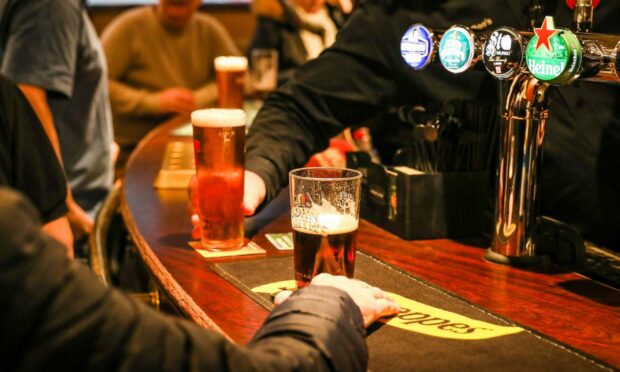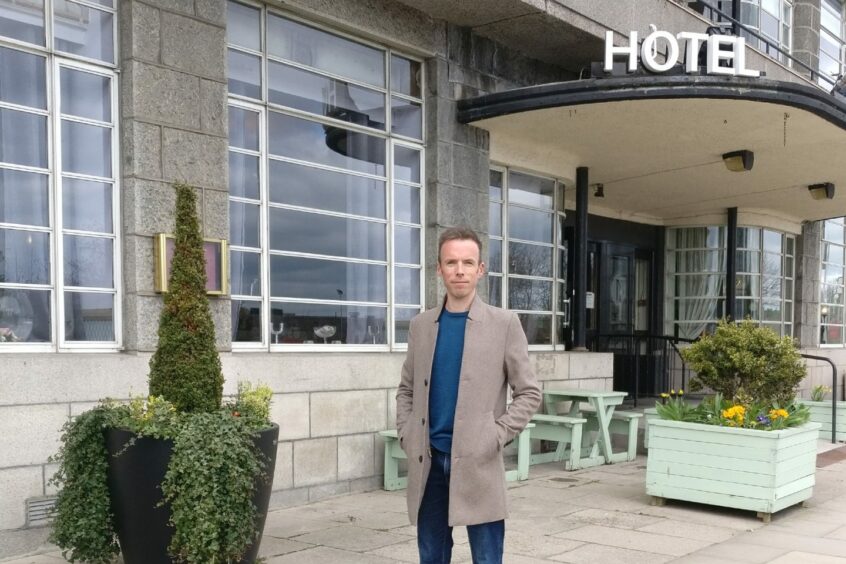Nine out of 10 pubs and bars in Scotland face going bust over the winter unless government intervenes to support the sector.
A survey of over 600 hospitalty businesses, including a number in the north and north-east, highlighted the “unprecedented” challenges they face as costs of energy as well as food and drink soars.
The Scottish Licensed Trade Association (SLTA) highlighted the dire situation facing the sector which has intensified in recent days as the value of the British pound has collapsed causing the cost of imported good including beer and wine to rise.
North and north-east face even greater disadvantage
The survey’s findings were backed by the likes of Steven Finnie, the owner of the Aberdeen Northern Hotel, who recently revealed he would be forced to close the accommodation side of the business but keep the bar open due to his energy bills having quadrupled.
However, he warned he might have to shut the bar operation too – closing the doors on over 80 years of trading.
He said he was “facing nearly all of the challenges” outlined in the trade body’s survey.
“Our energy prices increased by 400% in April 2022, the cost of all goods and services have been steadily increasing, our customers are facing their own rising energy bills and a squeeze on disposable income, and staff are increasingly harder to find,”he said, adding: “Not one single measure the government has proposed to date has helped us.
Not one single measure the government has proposed to date has helped us.”
Steven Finnie, owner of the Aberdeen Northern Hotel
“I am still paying 100% of my business rates which amounts to over £4,000 per month, and the cap on energy prices is way above our already unmanageable unit prices so is of no help whatsoever.
“If we don’t get relief in some form then I will need to close the bar too.”
In Inverness, Gavin Stevenson runs the Mor-Rioghain Group which has a music venue, Gellions Bar, along with adjacent pub Monty’s and the nightclub Upstairs, said his business would have to “explore all options” – unless intervention comes in the next month.
“The situation the sector is in now is worse in many ways than the Covid pandemic.”
Mr Stevenson, who is also vice chair of the Night Time Industry Association, said bars and pubs in Scotland were hit harder during the pandemic as they were required to shut down longer than counterparts in England and faced entering the next crisis in a “uniquely disadvantaged” position.
“The average business in Scotland took on over £100,000 in debt – this is small hospitality businesses. That equates to two or three years profits in most cases,” he said.
“They are carrying that going into this crisis which means they just don’t have the financial resilience to weather the storm.”
Extend rates relief and cut VAT
He said the North of Scotland geography also made conditions more difficult.
“It gets darker earlier here and the weather is generally colder – so our heating and electricity bills are generally higher the further north in Scotland you get.”
He said the Scottish Government should extend rates reliefs while the “big ask” was for the UK Treasury to cut “killer” VAT.
“It really is time for government of all flavours, Westminster and Holyrood to step in to provide the vital support it needs if it going to survive this winter,” he said.
The SLTA warned 45% of respondents said they will operate reduced opening hours while one in 10 had already planned to shut for the winter.
Colin Wilkinson, SLTA managing director, said the snapshot survey covered all types of licensed premises from “major food and drink chains and independent pubs, bars and hotels in Scotland’s hospitality sector”.
Debt, Brexit, energy bills, staff shortages
He said: “Many of our respondents are still carrying significant Covid debt and are dealing with the challenges of Brexit, but we are now facing even bigger hurdles with rising costs, staff shortages and enormous increases to energy costs – with one in four anticipating an increase in energy costs of over 500%, despite the Chancellor’s announcement on capping wholesale energy prices.”
Mr Wilkinson warned: “For many outlets it won’t be economically viable to remain open and one in 10 of our respondents plan to close during the winter months and nearly one in two expect to reduce opening hours.
“Our sector is a crucial part of the tourism industry and reduced opening hours will have a knock-on impact for Scotland’s wider food and drink sector, and for employment within the sector.”
Stephen Gow, vice chairman of the Aberdeen City and Shire Hotels’ Association (ACSHA) said while the whole hospitality industry is in need of some support at this time, that “perhaps pubs and bars are facing an even bigger challenge than most”.
He said that while some hotels have a variety of revenue streams, including rooms, events, food and drink, which can insulate some larger operations, challenges remain across the industry.
“Regardless of the size of hospitality business you operate, the challenges are uniform and comprehensive,” he said.
“Recruitment remains particularly challenging in the north-east and this may also be contributing to some outlets opting to open on a five day week basis rather than seven.
“Energy is not the only cost which is spiralling. Food costs are marching ever higher on a weekly basis, making it hard to accurately price food and drink.
“Some businesses, particularly independent hotels, will also be facing the repayment of Covid support loans, which in turns means they can’t continually invest in their product.
“Even if your top line looks good, it’s only the bottom line which counts.”
The Scottish and UK Goverments have been approached for comment.
Summary of key challenges according to SLTA:
Staffing: 40% of outlets are employing significantly fewer staff, while recruitment post-Brexit remains an issue
Trading conditions: 5% of outlets have not re-opened post-Covid, while 50% are trading at significantly lower levels than pre-Covid
Covid debt: one in two of hospitality outlets are carrying significant Covid-related debt
Rising costs: particularly energy which business owners have identified as the biggest threat to their businesses. One in four of venues are facing an increase in energy cost of over 500%
Economic outlook: with rising energy costs, 45% of outlets expect to reduce their opening hours which will impact on tourism and employment
Government support: support is urgently needed, with 87% of outlets requesting government support to survive the winter.




Conversation